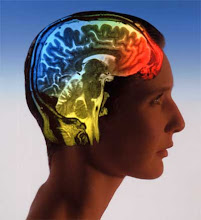A couple of interesting recent studies from the RD blog:
1) A topical one - phoning people up and reminding them of their responsibility to democracy doesn't make them more likely to vote, according to Nickerson & Rogers (2010), but asking them what time they will vote and what they will be doing beforehand was found to boost turnout by 9%.
2) It's easy to procrastinate, doing the most enjoyable tasks first and leaving the difficult ones. What's the best response to it? According to Wohl et al (2010), the best strategy is simply to forgive yourself for the time-wasting, and move on!
3) Kavetsos and Syzmanski (2010) found that the boost to mood of your country hosting a major sporting event (e.g. Olympics, World Cup) was "three times the size of the happiness boost associated with gaining a higher education; one and half times the happiness boost associated with getting married; and nearly large enough to offset the misery triggered by divorce". However unfortunately, this benefit only lasted a year before levels were back to normal.
4) Most usefully of all, Zhao et al (2010) studied how best to take a nap... Studying the effects of a 20 minute after-lunch nap, they found that the best option was to take a nap lying down. However, even a less-than-perfect position such as napping slumped forward on a desk had cognitive benefits.
References
Kavetsos, G., & Szymanski, S. (2010). National well-being and international sports events. Journal of Economic Psychology, 31 (2), 158-171
Nickerson DW, & Rogers T (2010). Do you have a voting plan?: implementation intentions, voter turnout, and organic plan making. Psychological science : a journal of the American Psychological Society / APS, 21 (2), 194-9
Wohl, M., Pychyl, T., & Bennett, S. (2010). I forgive myself, now I can study: How self-forgiveness for procrastinating can reduce future procrastination. Personality and Individual Differences, 48 (7), 803-808
Zhao, D., Zhang, Q., Fu, M., Tang, Y., & Zhao, Y. (2010). Effects of physical positions on sleep architectures and post-nap functions among habitual nappers. Biological Psychology, 83 (3), 207-213
Subscribe to:
Post Comments (Atom)

No comments:
Post a Comment